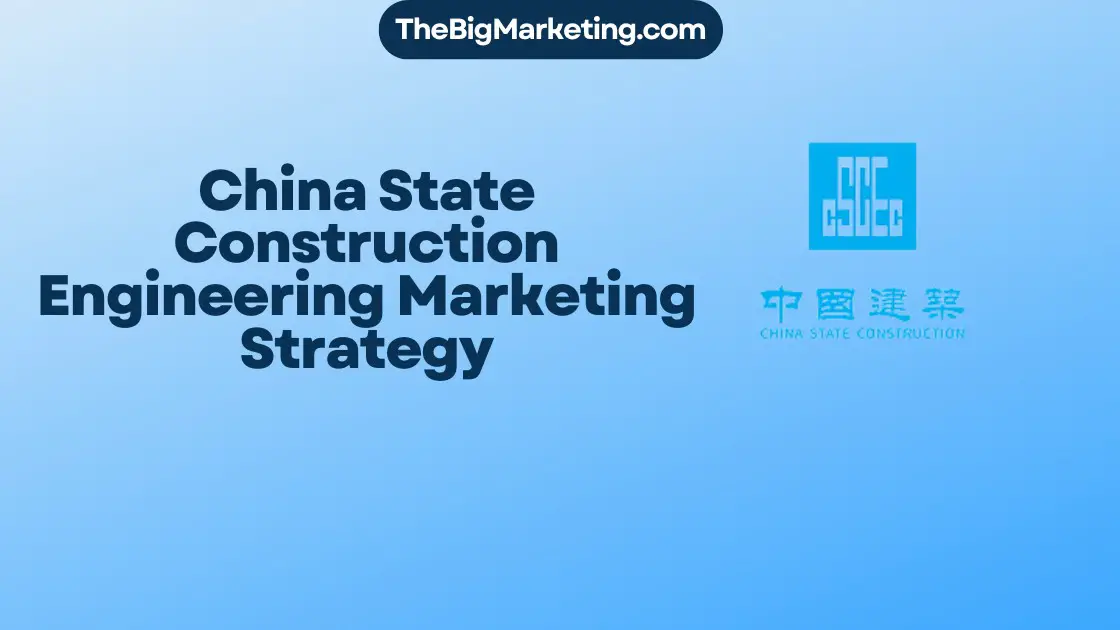Relationship marketing is a fundamental aspect of customer relationship management (CRM) that focuses on cultivating customer loyalty and fostering long-term engagement. It goes beyond traditional marketing strategies by prioritizing the development of deep, emotional connections with customers.
The importance of relationship marketing lies in its ability to create strong customer relationships, resulting in ongoing business, word-of-mouth promotion, and lead generation. It helps organizations retain customers, reduce marketing spend, and align their entire organization around the customer’s needs and desires.
In this article, we will explore the core concepts behind relationship marketing, discuss its importance, delve into effective strategies, and highlight the benefits it brings to businesses. We will also provide real-world examples to illustrate the successful implementation of relationship marketing strategies by renowned brands.
Key Takeaways:
- Relationship marketing focuses on cultivating customer loyalty and long-term engagement.
- It helps organizations retain customers, reduce marketing spend, and align their organization around the customer.
- Effective relationship marketing strategies include exceptional customer service, personalized approaches, customer feedback, loyalty programs, and customer advocacy.
- The benefits of relationship marketing include higher customer lifetime value, reduced marketing and advertising spend, and stronger organizational alignment.
- Successful implementation of relationship marketing strategies can lead to increased customer satisfaction, word-of-mouth promotion, and overall business growth.
The Importance of Relationship Marketing
Relationship marketing plays a crucial role in business growth and success. By prioritizing long-term customer engagement and satisfaction, companies can achieve customer loyalty, retention, and ultimately, increased revenue. Relationship marketing focuses on building strong emotional connections with customers, ensuring their needs are met, and establishing a positive brand perception. Let’s explore the key reasons why relationship marketing is of vital importance:
1. Customer Loyalty
Relationship marketing cultivates customer loyalty, which is essential for sustainable business growth. When customers feel valued and appreciated, they are more likely to remain loyal to a brand and choose it over competitors. By consistently delivering exceptional experiences and personalized offerings, businesses can foster strong relationships with their customers, leading to long-term loyalty.
2. Customer Retention
Retaining existing customers is more cost-effective than acquiring new ones. Relationship marketing focuses on nurturing ongoing relationships with customers, creating an environment of trust and satisfaction. By continuously engaging and addressing customer needs, businesses can reduce customer churn and increase customer retention rates.
3. Long-Term Satisfaction
Relationship marketing is centered around optimizing the customer experience to ensure long-term satisfaction. By understanding and meeting customers’ evolving needs, businesses can establish a reputation for exceptional service and quality. Satisfied customers are more likely to stay loyal, repurchase, and recommend the brand to others.
4. Increased Revenue
Relationship marketing helps businesses increase revenue without relying heavily on costly customer acquisition strategies. Loyal customers tend to spend more over time and are more receptive to trying new products or services. By nurturing these relationships and offering personalized recommendations, businesses can drive repeat purchases and revenue growth.
Relationship marketing provides a foundation for long-term success by establishing customer loyalty, retention, satisfaction, and revenue growth. Now that we understand the importance of relationship marketing, let’s explore effective strategies to implement in the next section.
Strategies for Relationship Marketing
Effective relationship marketing involves a combination of strategies and technologies that are based on the principles of customer experience management (CEM). To successfully implement relationship marketing, businesses need to adopt a personalized approach, gather and respond to customer feedback, and establish loyalty programs.
- Exceptional Customer Service: Providing exceptional customer service is one of the fundamental strategies in relationship marketing. By delivering personalized experiences and addressing customer needs promptly, businesses can build strong emotional connections with their customers.
- Social Media Engagement: Thanking customers through social media platforms is an effective way to strengthen relationships. By publicly acknowledging their support and engaging with them on social platforms, businesses can foster a sense of community and loyalty.
- Customer Feedback: Soliciting feedback through surveys, polls, and other feedback channels allows businesses to gather valuable insights into customer preferences and expectations. Acting on this feedback helps improve products, services, and overall customer experience.
- Loyalty Programs: Launching loyalty programs can incentivize customers to choose a specific brand over competitors. These programs can include rewards, exclusive offers, and personalized benefits, creating a sense of value and appreciation for loyal customers.
- Events and Experiences: Holding events, both virtual and physical, can provide opportunities for businesses to connect with their customers on a deeper level. These events can range from product launches and workshops to exclusive gatherings, fostering a sense of exclusivity and building stronger relationships.
- Customer Advocacy: Creating customer advocacy programs encourages satisfied customers to become brand advocates and promote the business to their networks. This can be done through referral programs, testimonials, and other initiatives that recognize and reward customers for their advocacy.
Personalization and tracking customer activities are key elements of relationship marketing. By tailoring experiences and communications to individual customers, businesses can deepen their connections and enhance customer satisfaction.
Benefits of Relationship Marketing
Relationship marketing offers numerous benefits that contribute to the success of a business. By prioritizing strong connections with customers, companies can unlock higher customer lifetime value, reduce marketing and advertising spend, and strengthen organizational alignment. Additionally, relationship marketing cultivates brand advocates who actively promote products and services, leading to increased brand awareness and customer acquisition. Let’s explore the key benefits in more detail:
1. Increased Customer Lifetime Value:
Building strong relationships with customers increases their lifetime value to the business. Satisfied customers are more likely to make repeat purchases and remain loyal, leading to increased revenue over time. By focusing on customer loyalty and engagement, relationship marketing maximizes customer lifetime value.
2. Reduction in Marketing and Advertising Spend:
Relationship marketing strategies can significantly reduce marketing and advertising expenditures. When businesses maintain strong relationships with existing customers, they rely less on costly acquisition campaigns. By focusing on nurturing and retaining loyal customers, companies can allocate their budget more efficiently and achieve better return on investment.
3. Stronger Organizational Alignment:
Relationship marketing fosters organizational alignment around customer-centric goals. By prioritizing long-term customer satisfaction and retention, departments across the organization become more aligned and work collectively toward a common objective. This alignment enhances collaboration and improves overall customer experience.
4. Creation of Brand Advocates:
Relationship marketing nurtures loyal customers who become brand advocates. These advocates actively recommend products and services to their friends, family, and colleagues, effectively functioning as word-of-mouth marketers. By providing exceptional experiences and fostering strong relationships, businesses can turn satisfied customers into dedicated brand advocates.
Relationship marketing not only strengthens customer relationships, but it also results in a better overall customer experience. Let’s dive deeper into the impact of relationship marketing on customer satisfaction in the next section.
Benefits of Relationship Marketing
| Benefits | Description |
|---|---|
| Increased Customer Lifetime Value | Building strong customer relationships leads to higher customer lifetime value, driving increased revenue over time. |
| Reduction in Marketing and Advertising Spend | Relationship marketing helps reduce the need for costly acquisition campaigns, allowing for more effective budget allocation. |
| Stronger Organizational Alignment | Prioritizing customer-centric goals enhances organizational alignment and collaboration across departments. |
| Creation of Brand Advocates | Nurturing loyal customers transforms them into brand advocates who actively promote the business. |
Relationship Marketing Examples
Relationship marketing is not just a theoretical concept; it has been successfully implemented by various brands across industries. These brands have utilized relationship marketing strategies to forge strong connections with their customers and cultivate loyalty. Let’s explore some relationship marketing examples:
1. Exceptional Customer Service
Delivering exceptional customer service is an effective relationship marketing tactic. Zappos, an online shoe and clothing retailer, is renowned for its exceptional customer service. They prioritize customer satisfaction by providing 24/7 support, free and easy returns, and personalized interactions. Zappos understands that exceptional customer service fosters loyal customers who are more likely to recommend the brand to others.
2. Customer Feedback
Seeking and valuing customer feedback is another important aspect of relationship marketing. Starbucks, the coffeehouse chain, actively engages with its customers through their “My Starbucks Idea” platform. They encourage customers to submit ideas, suggestions, and feedback, which they use to improve their products, services, and overall customer experience. By involving customers in shaping their brand, Starbucks showcases its commitment to customer-centricity.
3. Loyalty Programs
Loyalty programs are a popular strategy in relationship marketing, rewarding customers for their continued support. Sephora, the beauty retailer, has implemented a highly successful loyalty program called Sephora Beauty Insider. Members earn points for every purchase, which can be redeemed for exclusive products and experiences. This program not only incentivizes repeat purchases but also creates a sense of exclusivity and appreciation among customers.
4. Customer Advocacy
Creating customer advocacy programs can turn satisfied customers into brand advocates. One example is Nike’s NikePlus membership program. Members gain access to exclusive benefits, such as early product releases and personalized recommendations. By nurturing a community of brand advocates, Nike encourages positive word-of-mouth promotion and strengthens its customer relationships.
These relationship marketing examples illustrate how brands use exceptional customer service, customer feedback, loyalty programs, and customer advocacy to build enduring connections with their customers. Implementing relationship marketing strategies can lead to increased customer loyalty, positive brand awareness, and ultimately, business growth.
| Brand | Relationship Marketing Strategy |
|---|---|
| Capital One | Highly personalized customer experiences |
| Delta | Exceptional customer service and frequent flyer program |
| Fairway Independent Mortgage Corporation | Engaging with customers through social media and personalized communication |
| Fenty | Collaborating with customers and influencers to co-create products |
| GE | Providing comprehensive customer support and educational resources |
| Domino’s | Rewards program and interactive customer experience through their app |
| Panera | Personalized messages and offers based on customer preferences |
| Marriott | Loyalty program with exclusive benefits and personalized experiences |
| ArmorSuit | Engaging customers through social media and contests |
Relationship Marketing vs Traditional Marketing
When it comes to marketing approaches, relationship marketing and traditional marketing have distinct differences. Traditional marketing focuses on transactional sales and customer acquisition, whereas relationship marketing prioritizes customer loyalty and long-term engagement.
Relationship marketing aims to create strong emotional connections with customers, fostering ongoing business and positive word-of-mouth promotion. By building and nurturing relationships, businesses can cultivate customer loyalty, leading to repeat purchases and increased customer lifetime value.
On the other hand, traditional marketing often focuses on one-time sales and acquiring new customers. While it can be effective for generating immediate revenue, it may not necessarily lead to long-term customer loyalty. Without a relationship marketing strategy, businesses risk losing customers who may not return in the future.
By implementing relationship marketing, organizations can develop personalized experiences, provide exceptional customer service, and create a strong customer community. These efforts foster customer loyalty, resulting in sustained business growth.
Relationship Marketing vs Transactional Marketing
Transactional marketing, a subset of traditional marketing, primarily focuses on individual sales transactions rather than building ongoing customer relationships. It involves tactics such as discounts, promotions, and one-time offers to entice customers to make a purchase.
In contrast, relationship marketing looks beyond the immediate transaction and aims to develop long-term connections with customers. It takes a personalized approach to customer interactions and focuses on providing value before, during, and after the sale.
While transactional marketing may attract customers in the short term, relationship marketing is more conducive to building lasting customer loyalty and fostering repeat business.
Customer Loyalty and Acquisition
Relationship marketing plays a crucial role in cultivating customer loyalty. By prioritizing long-term engagement and customer satisfaction, businesses can strengthen emotional connections and build trust with their customers.
Customer acquisition, on the other hand, focuses on bringing in new customers to expand the customer base. While customer acquisition is essential for business growth, relationship marketing emphasizes the retention and nurturing of existing customers.
By implementing relationship marketing strategies, businesses can strike a balance between customer acquisition and customer loyalty. This approach leads to sustainable growth by maximizing the value of existing customers while attracting new ones.
Customer Acquisition vs Customer Retention
While customer acquisition is necessary for expanding a customer base, customer retention is equally important for long-term success. Relationship marketing puts significant emphasis on customer retention by fostering strong relationships and providing ongoing value.
Customer acquisition efforts can often be costly, requiring significant investments in marketing campaigns and advertising. Relationship marketing, on the other hand, can help businesses reduce their marketing spend by focusing on retaining existing customers.
Not only does customer retention lead to increased customer lifetime value, but it also creates brand advocates who are more likely to recommend the product or service to others. These positive word-of-mouth recommendations can significantly impact business growth.
Implementing a Relationship Marketing Strategy
Implementing a relationship marketing strategy is crucial for businesses seeking to enhance customer retention and foster long-term engagement. By adopting a personalized approach, companies can establish deeper connections with their customers and create a sense of loyalty. To effectively implement relationship marketing, the following key elements should be considered:
1. Customer Retention:
Achieving customer retention requires a proactive approach to understanding and meeting customers’ needs. By focusing on delivering exceptional experiences and personalized interactions, businesses can strengthen the bond with their customers, increasing the likelihood of repeat purchases and long-term satisfaction.
2. Personalized Approach:
A personalized approach is vital to relationship marketing success. Tailoring communications and offers to individual customers’ preferences and behaviors helps create a sense of exclusivity and fosters a deeper connection. Implementing a customer segmentation strategy can enable businesses to identify different customer groups and develop targeted marketing initiatives.
3. Marketing Automation:
Marketing automation tools play a significant role in relationship marketing implementation. These tools enable businesses to automate various marketing activities, such as personalized email campaigns, social media management, and customer journey tracking. By leveraging marketing automation, businesses can streamline their efforts and deliver personalized, timely messages to customers.
4. Social CRM:
In today’s digital age, social media has become an integral part of relationship marketing. Social CRM tools facilitate the extension of relationship marketing into social media platforms. By actively monitoring and responding to customer issues and feedback on social media channels, businesses can show their commitment to customer satisfaction and strengthen their brand image.
5. Two-Way Communication:
Building a strong relationship requires open and easy two-way communication between businesses and customers. Providing channels for customers to voice their opinions, concerns, and feedback is crucial. By actively listening and responding to customer inputs, businesses can build trust, demonstrate transparency, and enhance customer satisfaction.
By implementing relationship marketing strategies that focus on customer retention, personalized approaches, marketing automation, social CRM, and facilitating two-way communication, businesses can establish strong connections with their customers and cultivate long-term engagement.
The Impact of Relationship Marketing on Customer Retention
Relationship marketing plays a crucial role in customer retention, fostering long-term engagement, and driving customer loyalty. By prioritizing the establishment of strong, emotional connections with customers, businesses can create lasting relationships that translate into increased retention rates.
Relationship marketing strategies focus on providing positive customer experiences and addressing unmet needs. This approach not only satisfies customers but also encourages them to continue doing business with the brand over an extended period. Customers who feel valued and appreciated are more likely to remain loyal and engaged.
Repeat customers are valuable assets to any business. They not only generate consistent revenue but also have the potential to become brand advocates. These loyal customers are more inclined to recommend the brand to others, effectively becoming advocates and driving new customer acquisition through positive word-of-mouth promotion.
Additionally, relationship marketing allows businesses to gather valuable feedback from loyal customers. This feedback can be used to refine products, services, and overall customer experiences, leading to continuous improvement and growth. By leveraging the insights provided by engaged customers, businesses can tailor their offerings to better align with customer preferences and needs.
Implementing relationship marketing strategies is key to ensuring long-term business growth and cultivating a loyal customer base. By investing in building strong relationships with customers, businesses can increase customer loyalty, drive customer retention, and ultimately achieve sustainable success.
Building Customer Loyalty and Long-Term Engagement
One of the primary benefits of relationship marketing is its ability to foster customer loyalty and long-term engagement. By focusing on creating positive customer experiences and delivering personalized interactions, businesses can build a strong foundation of trust and loyalty.
Relationship marketing allows businesses to develop deep connections with customers by understanding their needs, preferences, and aspirations. This level of understanding enables companies to provide tailored offerings and personalized experiences that resonate with their target audience.
When customers feel valued and understood, they are more likely to continue their relationship with the brand, resulting in increased retention rates. Building these long-term relationships also creates opportunities for upselling and cross-selling, driving additional revenue and business growth.
Overall, relationship marketing not only enhances customer satisfaction but also contributes to higher customer retention rates and increased customer lifetime value. By prioritizing customer relationships and engagement, businesses can build a loyal customer base that fuels sustainable growth and success.
Driving Customer Loyalty through Relationship Marketing
Relationship marketing is instrumental in driving customer loyalty, as it allows businesses to go beyond transactional interactions and create meaningful connections with their customers. By investing in relationship marketing strategies, businesses can build trust, strengthen customer relationships, and foster loyalty.
Relationship marketing involves personalized communication, exceptional customer service, and the demonstration of genuine care for the customer’s well-being. By consistently delivering on these fronts, businesses can distinguish themselves from competitors and create loyal brand advocates.
When customers feel a genuine connection with a brand, they are more likely to remain loyal and recommend the brand to others. Loyal customers not only provide repeat business but also act as brand ambassadors, promoting the brand through positive word-of-mouth and online reviews.
Furthermore, relationship marketing allows businesses to anticipate and cater to customer needs proactively. By leveraging customer data and feedback, businesses can adapt their offerings and experiences to align with customer preferences, increasing customer satisfaction and loyalty.
Ultimately, relationship marketing serves as a powerful tool for driving customer loyalty and fostering long-term relationships. By prioritizing customer needs and building lasting connections, businesses can create a loyal customer base that contributes to sustained growth and success.
Relationship Marketing and Customer Satisfaction
When it comes to building lasting relationships with customers, satisfaction is key. Relationship marketing focuses on understanding customer needs and providing personalized offerings to create positive interactions and foster brand loyalty. By implementing relationship marketing strategies, businesses can enhance customer satisfaction and strengthen their customer base.
Soliciting customer feedback is an essential aspect of relationship marketing. By actively listening to customers and using their feedback to improve products and services, businesses can address pain points and meet their expectations more effectively. This approach not only enhances customer satisfaction but also demonstrates that the business values their input and is committed to their ongoing happiness.
Personalized offerings are another crucial element of relationship marketing. By tailoring products, services, and marketing communications to individual customers, businesses can create a more meaningful and relevant experience. This level of personalization increases the likelihood of customer satisfaction and demonstrates that the business understands and values each customer’s unique needs and preferences.
Benefits of Relationship Marketing for Customer Satisfaction:
- Brand Loyalty: When customers are satisfied with their experiences, they are more likely to remain loyal to the brand, choosing it over competitors.
- Word-of-Mouth Marketing: Satisfied customers become brand advocates, spreading positive word-of-mouth and recommending the brand to others.
- Repeat Business: Satisfied customers are more likely to make repeat purchases, leading to increased revenue and customer lifetime value.
- Customer Retention: By consistently meeting customers’ needs and expectations, businesses can improve customer retention rates, reducing churn and generating long-term value.
Overall, relationship marketing plays a significant role in driving customer satisfaction. By understanding customer needs, soliciting feedback, and providing personalized offerings, businesses can create positive interactions, foster brand loyalty, and build a strong customer base. In the next section, we will explore how relationship marketing contributes to word-of-mouth promotion and customer advocacy.
Relationship Marketing and Word-of-Mouth Promotion
One of the key aspects of relationship marketing is its impact on word-of-mouth promotion. When customers have positive experiences with a brand, they are more likely to recommend it to their friends, family, and colleagues. This organic form of marketing can significantly contribute to increased sales and brand awareness.
To harness the power of word-of-mouth promotion, businesses can employ various relationship marketing strategies. One effective approach is to create customer advocacy or brand ambassador programs. These programs incentivize customers to spread positive word-of-mouth about a brand by offering rewards or recognition for their support.
By turning loyal customers into brand advocates, businesses can tap into their networks and reach a wider audience. When people receive recommendations from someone they know and trust, they are more likely to consider purchasing from that brand. This not only drives sales but also helps establish credibility and trust in the market.
Relationship marketing strategies centered around word-of-mouth promotion can have a significant impact on a brand’s success. By nurturing customer relationships and creating loyal advocates, businesses can amplify their marketing efforts and generate positive buzz about their products or services.
Relationship Marketing and Business Growth
Relationship marketing has a significant impact on business growth by increasing customer lifetime value and driving increased revenue through repeat purchases. By prioritizing customer loyalty and long-term engagement, businesses can build a strong and loyal customer base that is more likely to continue supporting the brand.
One key aspect of relationship marketing is personalized offerings. By tailoring products and services to meet individual customer needs, businesses can create a personalized experience that resonates with customers and fosters satisfaction. Satisfied customers are more likely to remain loyal and continue purchasing from the brand, leading to increased customer lifetime value and sustained business growth.
Exceptional customer service is another critical component of relationship marketing. By providing exceptional experiences and addressing customer needs and concerns promptly and effectively, businesses can build trust and loyalty. Satisfied customers are more inclined to become brand advocates, spreading positive word-of-mouth and contributing to increased revenue.
Relationship marketing also helps create a positive brand image. By consistently delivering personalized offerings and exceptional customer service, businesses can establish a reputation for providing value and satisfying customer needs. A strong brand image fosters trust and attracts new customers, increasing the customer base and contributing to business growth.
In conclusion, relationship marketing plays a crucial role in driving business growth. By focusing on customer loyalty and long-term engagement, businesses can increase customer lifetime value, drive repeat purchases, and generate sustained revenue. Through personalized offerings, exceptional customer service, and building a positive brand image, relationship marketing helps foster satisfied customers who become brand advocates, driving further growth and success.
Conclusion
In conclusion, relationship marketing is a crucial strategy for businesses aiming to cultivate customer loyalty, foster long-term engagement, and drive sustainable business growth. By focusing on establishing strong emotional connections with customers and delivering personalized experiences, businesses can enhance customer satisfaction and increase customer lifetime value.
Implementing effective relationship marketing strategies has proven to be successful for numerous brands, resulting in positive word-of-mouth promotion and overall business success. By prioritizing customer needs and preferences, businesses can create lasting relationships with their customers, leading to repeat purchases, brand advocacy, and increased revenue.
It is vital for businesses to recognize the value of relationship marketing in today’s competitive landscape. By investing in strategies that prioritize long-term customer engagement and satisfaction, businesses can position themselves for long-term success. Through relationship marketing, businesses can nurture customer loyalty and establish a strong foundation for sustainable growth and a positive brand image.





